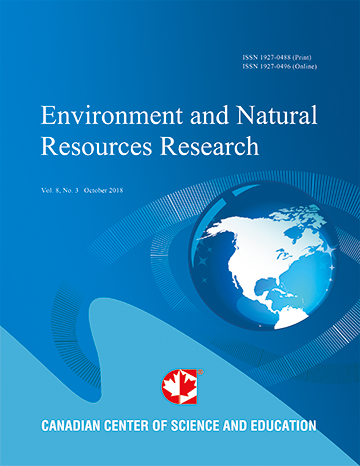Current Livelihood Condition of and Futurity of Tea Farming for Marginal Small Tea Farm Holders (MSTH) of Sri Lanka: Case Study From Badulla and Matara District
- Indika Palihakkara
- Abrar J. Mohammed
- Makoto Inoue
Abstract
With an area of 120,955 ha, Small Tea Farm Holders (STH) constitute about forty percent of the total tea land area of Sri Lanka. In addition to possessing small tea land area, portion of small holders face another serious problem, low productivity of the tea land. With the aim of filling the knowledge gap on the livelihood of Marginal Small Tea Farm Holders (MSTH) and guide future policies and other interventions based on existing realities, this research analyzes the livelihood of MSTH in Badulla and Matara district using Sustainable Livelihood (SL) Framework and discusses futurity of tea production for MSTHs. Since land is the most limiting factor for their livelihood, the MSTH were first divided into four land categories ranging from very small to large holder. Then, their livelihood capital was measured using the five livelihood capitals, i.e., natural, human, social, physical and financial. The result showed inconsistent relationship between land size of MSTH and other capitals such as number of trees planted and income from tea production. The district with smaller average land size (Matara) and the very small and small land holders within district were found to generate more income from tea reduction. Improving human capital through education was also found to contribute negatively toward labor contribution for tea production. Between districts, weather and elevation, two forms of natural capital which are mostly neglected in rural studies using SL approach, were found to play important role in determining outcome from tea based livelihood. Overall, however, majority of the farmers are in the view that tea generates low benefit and should look for other alternatives. Considering this, possibility of other livelihood activities such as conversion of the marginal tea land to fuelwood planation should be considered. This, in addition to improving farmers’ livelihood through enhanced income from their land, will also contribute for overcoming the ongoing shortage of fuelwood in Sri Lanka while also improving the environmental service from the MSTHs’ land.
- Full Text:
 PDF
PDF
- DOI:10.5539/enrr.v5n1p11
Journal Metrics
Google-based Impact Factor (2016): 6.22
h-index (November 2017): 12
i10-index (November 2017): 19
h5-index (November 2017): 11
h5-median (November 2017): 12
Index
Contact
- Emily LinEditorial Assistant
- enrr@ccsenet.org
